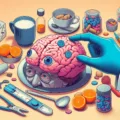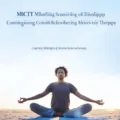Cognitive remediation therapy (CRT) is a psychological treatment that aims to improve cognitive functioning in people experiencing mental health conditions like depression or schizophrenia. At its core, CRT helps rebuild the fundamental cognitive skills needed for daily living.
Who is CRT for?
CRT is often used as part of treatment plans for conditions like:
- Schizophrenia
- Depression
- ADHD
- Traumatic brain injury
It targets cognitive skills like:
- Memory
- Attention
- Executive functioning
- Social cognition
How does CRT work?
In CRT, patients practice tasks targeting specific cognitive skills. These could involve exercises to improve working memory, filter distractions, or plan multi-step activities. The tasks start simple, but get harder as skills improve.
CRT aims to re-build cognitive capacity through this repetitive practice. Over time, patients can transfer strengthened cognitive skills into daily life.
What are the benefits?
Research shows CRT can provide benefits like:
- Reduced symptom severity
- Improved social and occupational functioning
- Enhanced quality of life
Many studies confirm CRT improves cognitive performance on the tasks trained. Some research also demonstrates broader transfer effects, spreading to untrained cognitive areas or real-world functioning.
What does CRT involve?
CRT is personalized for each patient’s cognitive strengths/weaknesses. But sessions often involve repetitive practice on computer-based cognitive exercises. These tap skills like:
- Processing speed
- Working memory
- Executive functioning
- Attention control
- Verbal learning
The difficulty adjusts based on performance – so the training stays challenging. This helps drive neural changes to support cognitive gains.
CRT FAQ
Is CRT effective?
Yes, research overwhelmingly shows CRT improves performance on trained cognitive tasks. Studies also demonstrate some transfer to real-world cognitive gains.
How long are CRT sessions?
Sessions typically run 30-60 minutes 1-5 days per week. Training length varies, but programs often last 8-12 weeks.
Can CRT improve mood?
For some patients, yes. By strengthening cognitive skills needed for daily tasks, CRT can boost confidence and self-esteem. For those with depression, reducing cognitive impairment may also lighten mood.
Is CRT used alone?
Rarely. CRT commonly complements other interventions like therapy, social skills training, or medication.
Who provides CRT?
Psychologists or psychiatrists with specialized CRT training often oversee and interpret results. But trained technicians frequently administer the computer-based training tasks.









